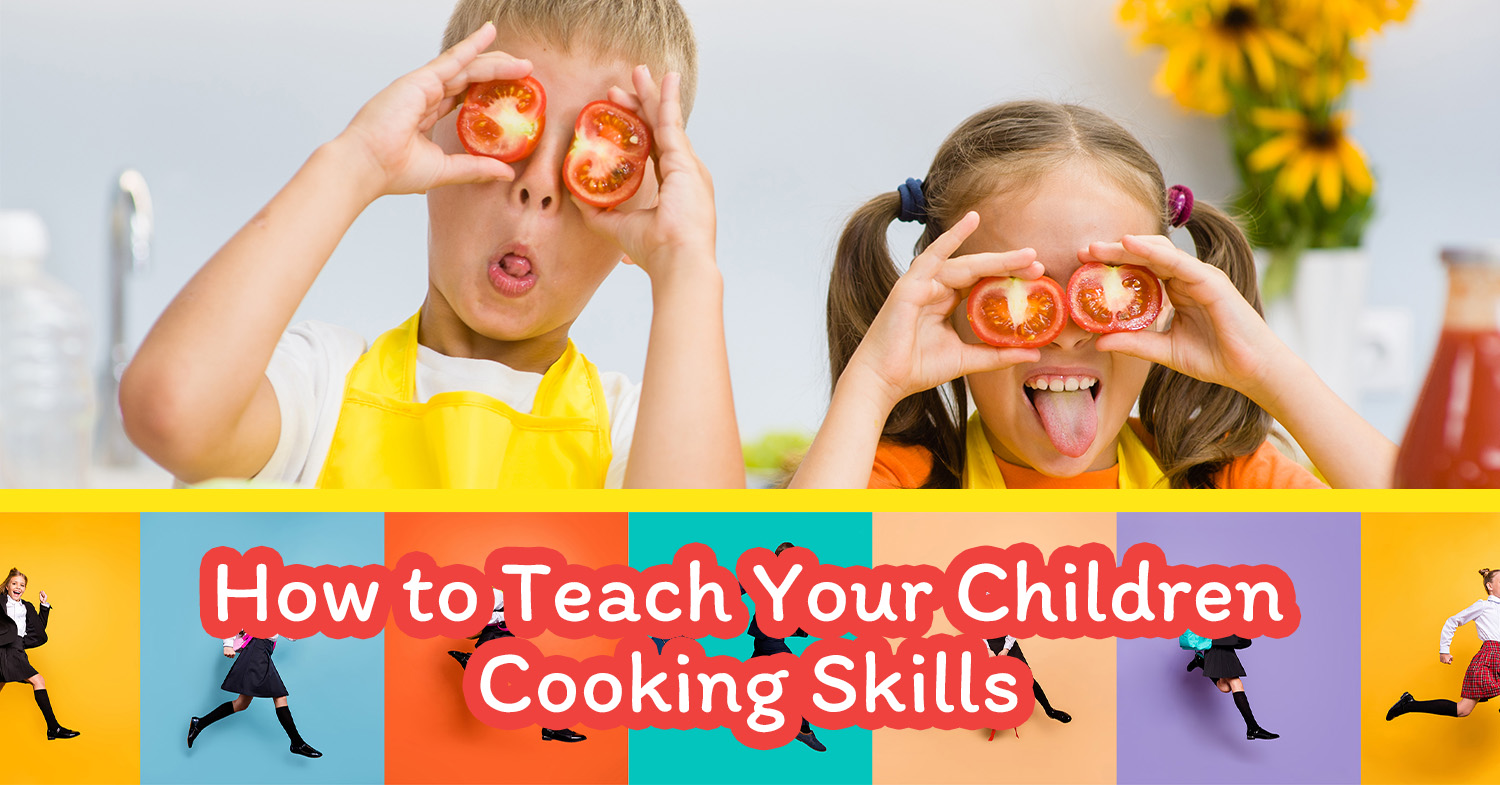It’s time to get cooking! Being able to teach your children independence, life skills, and spend special time with them is so important. Here are some tips to help you teach your kids cooking skills.
Take Your Time
When you’re preparing to teach your child cooking skills, be aware that it will take longer than you think. If a recipe takes you 10 minutes, it will take longer when teaching and helping kids create the same recipe. So plan for additional time whenever you’re in the kitchen teaching your child. And remember, there’s no need to rush anyways! The trip, especially for children, is just as enjoyable as the goal.
Teach Hygiene and Safety
Hygiene and safety are crucial skills to learn alongside cooking skills. After all, they usually go hand in hand anyways – no one wants food poisoning or burns as part of their cooking experience.
Show your child how to wash their hands before cooking and after touching raw meat and eggs. Remind them, and more importantly, show them yourself how washing hands is an important part of cooking we can’t forget. Make a no goofball rule while in the kitchen – there should be no running, jumping, dancing, or playing while they’re cooking, especially while they’re learning. Also, there should be a no-fighting rule in the kitchen as well. There are sharp, hot, and other dangerous things happening when we cook. Kids need to realize that cooking needs focus so they avoid injury. If they can’t focus, they can try cooking again another day.
Prepare for Mess
For many parents, a common roadblock to teaching cooking skills is that it will be messy. That’s understandable, but there’s no way around it. Cooking with kids is messy! However, there are some things to help minimize the mess.
First, for younger kids, limit their area so the mess is a little more contained. Get a learning tower or place a stool at one end of the count and remind them this is their “station,” and they need to stick to this spot until the cooking is done. Placing a high chair mat or an old bed sheet under their working space on the floor can help catch crumbs and other messes they make. At the end, just gather it up and take it outside to shake it off when you’re done. To help minimize spills with little ones, size up your measuring cups. For example, if your recipe calls for half a cup, let them fill a one cup halfway instead of a half cup to the brim.
Kids can also learn that cleaning up is a part of cooking. They don’t just get to do the fun part and leave the mess to you! Arm them with a cloth, non-toxic spray cleaner, and a broom so they can help tidy up afterward.
Use Regular Utensils
Even though it may seem like you need special kid’s utensils, they certainly aren’t necessary. For most things, children are capable of using regular cooking utensils. Kid’s cooking utensils can clutter up the kitchen, and your children will quickly grow out of them as they get bigger and their competence increases. So unless you need a knife and fork set for your toddler, save your money!
Give Them Age-Appropriate Tasks
You may be ready to bring your kids into the kitchen but are unsure where to start. This is when you start with age-appropriate tasks. “Age-appropriate” can mean different things to different kids, depending on their interests, maturity, coordination, and strength. So use your best judgment on your child’s readiness. Here are some task ideas, split by age group, you can try:
Age 3-5:
- Wash fruits and veggies
- Tear lettuce for salads
- Mash ingredients like overripe bananas and soft potatoes
- Knead dough (you’ll likely want to get this started for them, but many kids will love to punch, roll, and toss a ball of dough)
Age 5-7:
- Mix ingredients
- Crack eggs (just be sure to watch out for shells!)
- Chop softer fruits and veggies
- Read aloud recipe steps
Age 8-12:
- Peel veggies
- Chop harder fruit and veggies
- Make sandwiches
- Make simple batter from scratch
- Practice stirring things in a hot pan on the stove and using a griddle
Age 13 & Up:
- Make recipes on the stovetop
- Bake on their own
- Learn to use various kitchen gadgets, like the blender, food processor, and waffle maker
Make a Standing Date
Teaching cooking skills can be stressful, but to reduce stress and increase the intentionality of cooking, create a standing date once a week. This means on one day, everybody knows the kids will be helping with cooking. That way, you can be mentally prepared, your kids are excited about the idea, and everyone can work together peacefully.
If you have older kids/tweens, this can be altered to have your kid be the “lead cook” for dinner one night a week. They’ll have the opportunity to build a menu and show off their skills to the family. This will help them build confidence, give them a sense of accomplishment, and give you a night off!
Epic Kids is Here for Your Family
Cooking skills are essential life skills, and the best place for them to learn is right alongside you in the kitchen. It can be a little messy, but your kids will love the time spent with you and will always be thankful for the memories and handy skillset they’ll use for the rest of their life.
If you’re looking for stories about extraordinary kids, family-friendly news and events, and fun outdoor activities, it’s time you signed up for Epic Kids! Get this fabulously fun publication that both parents and kids enjoy delivered straight to your mailbox.






